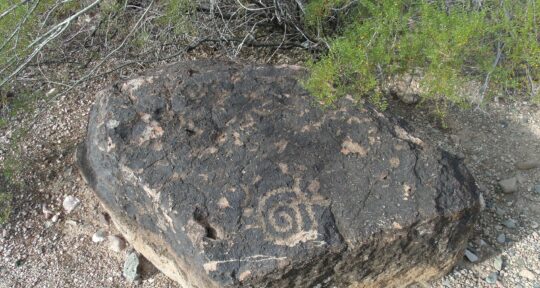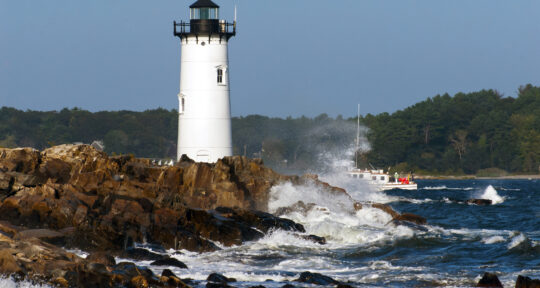The Sonoran Desert can be both mysterious and magical. Stories of lost treasure, unique plants and animals, ancient ruins, and some of the most beautiful scenery in the U.S. creates an aura of enchantment that can bring out anyone’s inner adventurer. Whether you’re soaking in the hot springs or pondering the meaning of ancient petroglyphs, there are many ways to immerse yourself in Phoenix’s fascinating past.
From seriously large cacti and geological wonders to hiking trails, here are eight places to hike, soak, and experience the Arizona desert in and around Greater Phoenix.
Bring plenty of water, wear a hat and sunscreen, and hit the trail in the early morning or near dusk during hot-weather months.
1. Waterfall Trail
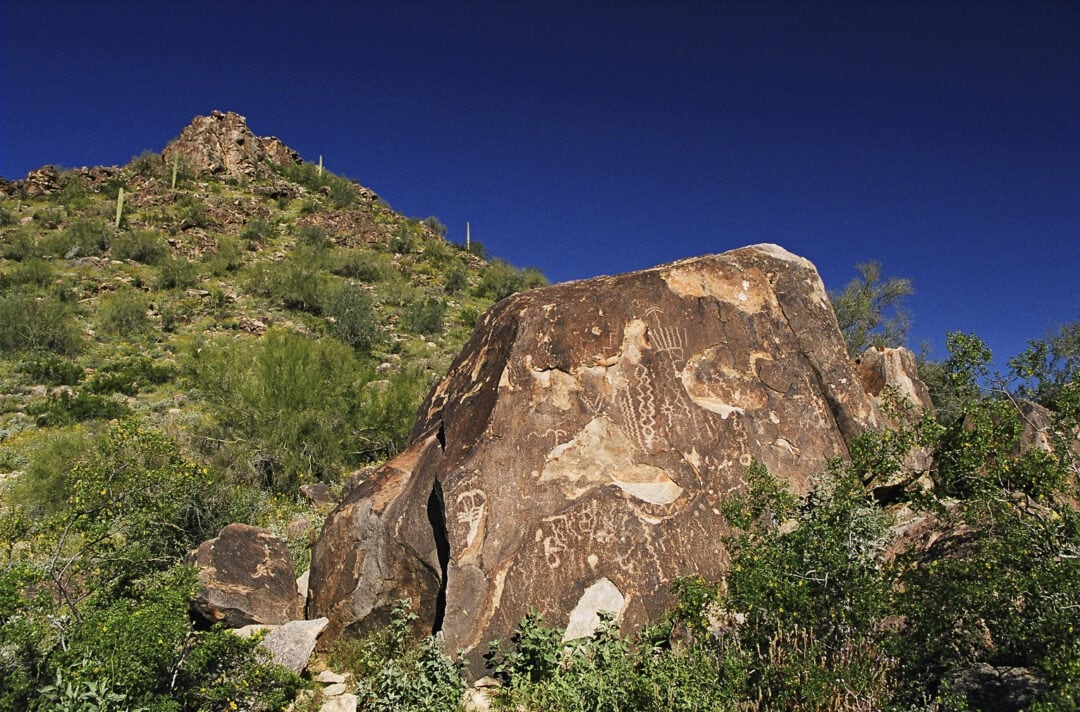
This easy-going trail leads you right to the cliff of a waterfall. Great for families, dogs, and the average curious hiker, Waterfall Trail (at White Tank Mountain Regional Park on Greater Phoenix’s western border) is just 2 miles round trip. The waterfall is most photogenic after a good rainfall—but petroglyphs and sweeping views are abundant enough to make the hike worthwhile, whether the water is flowing or not.
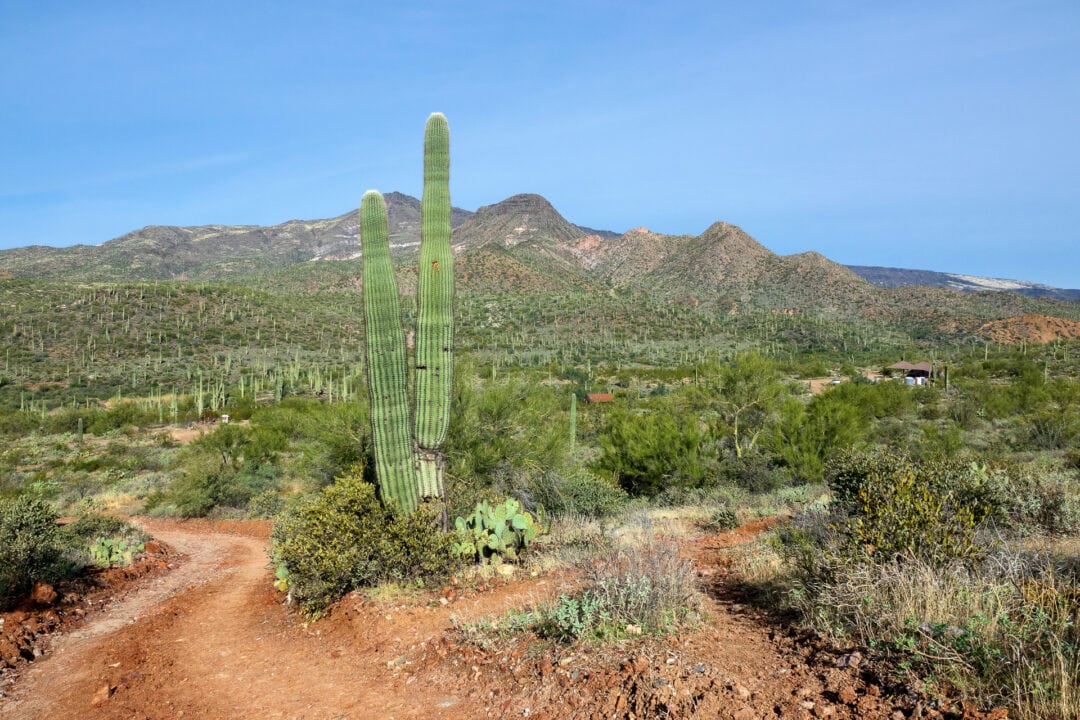
2. Spur Cross Ranch Conservation Area
Spur Cross Ranch Conservation Area consists of eight different trails (rated easy, moderate, and extremely difficult), and is home to some seriously large saguaro cacti. Choose the right hike length for you on easy-to-follow trails that range from a quick, 30-minute hike to several hours long. Metate Trail offers views of mysterious petroglyphs; for a $3 fee, you’ll receive access to the park as well as a map and trail guide.
3. Deer Valley Petroglyph Preserve
Native Americans created more than 1,600 petroglyph carvings throughout the 50-acre archeological site known as Deer Valley Petroglyph Preserve. As a reminder, you can look and observe, but do not touch the petroglyphs so they can stay preserved—oil from hands can be extremely damaging.
You’ll find interpretive signs and a free audio tour to follow for context along the trail. An onsite museum offers historical exhibitions, educational programs, children’s activities, live-music events, a gift shop, and more.
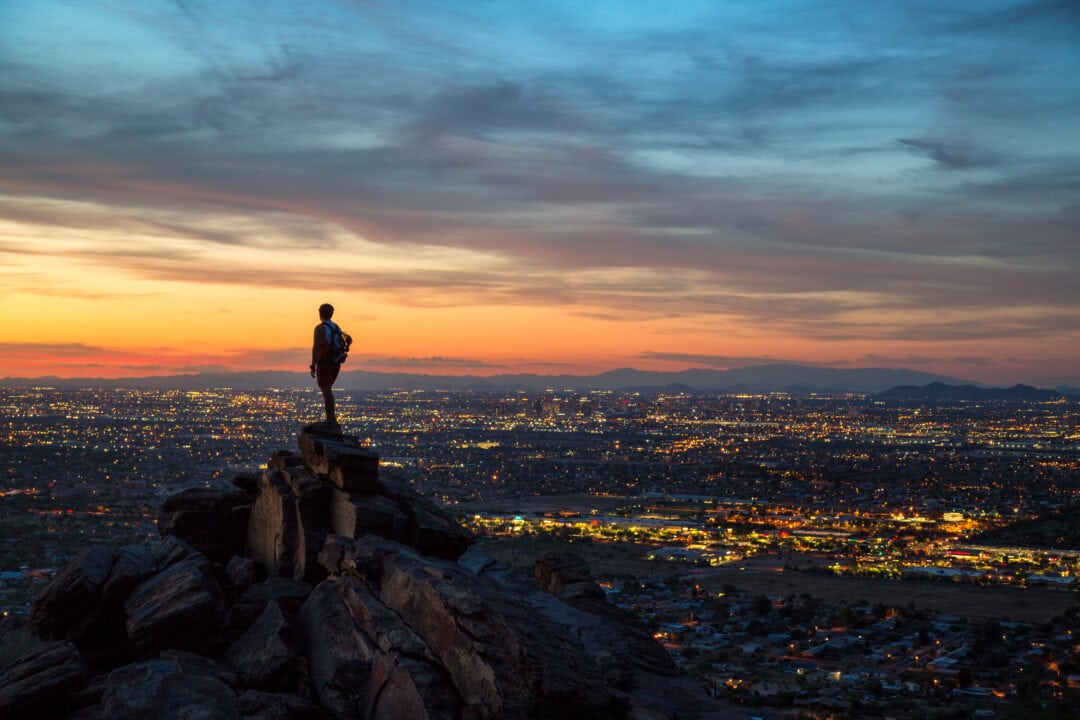
4. Mormon Trailhead
For a challenging hike located right in town, Mormon Trailhead, located at the bottom of South Mountain Park and Preserve, connects to a few different trails and offers the chance to see petroglyphs as well as panoramic views of Phoenix. The Hidden Valley loop is less than 4 miles, and filled with dry waterfalls, tunnels, and great photo ops.
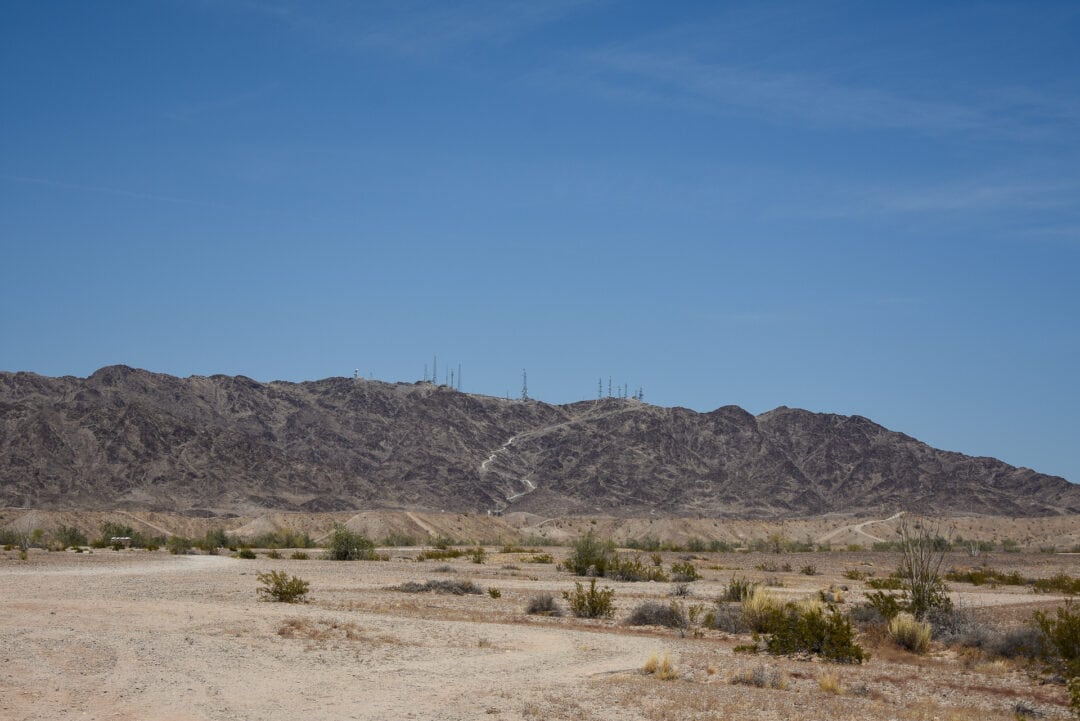
5. Telegraph Pass
Named after the telegraph line that once ran from San Diego to Maricopa Wells, Telegraph Pass Trailhead spans a few miles and is located right inside South Mountain Park and Preserve. It’s one of the more popular trails in the park, and although it’s shorter than most of the others, it can get steep. The start of the trail is paved and features informative signs about the various petroglyphs you will encounter. It’s common for hikers to continue on to the National Trail from here to explore more rock formations and take in the sweeping views.
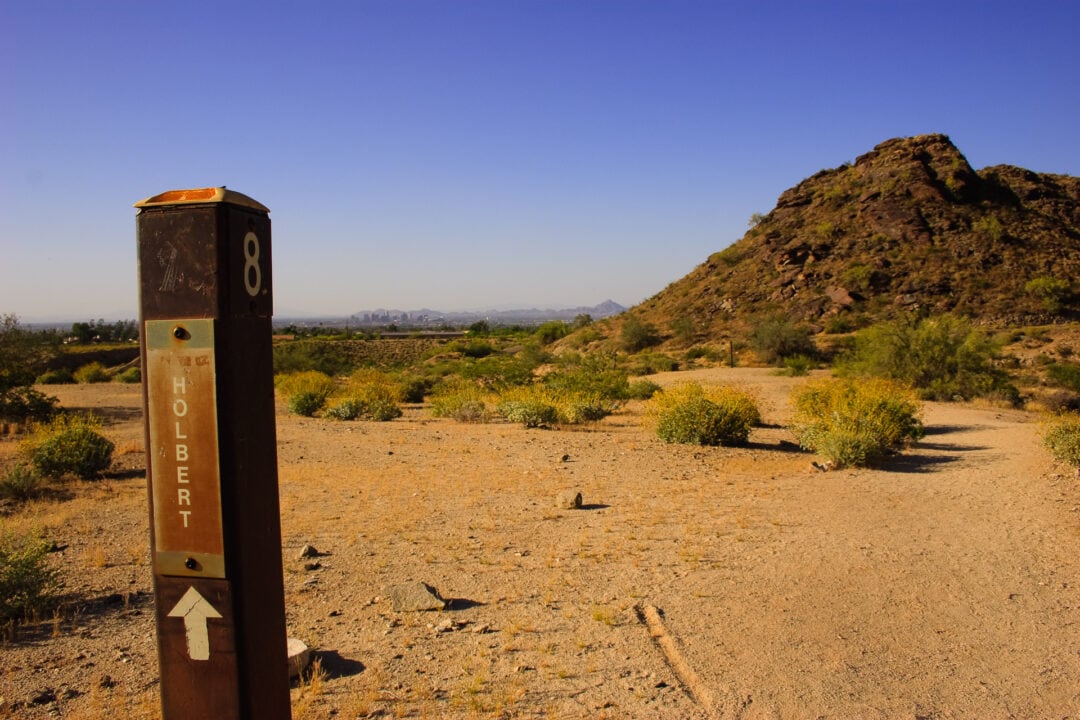
6. Holbert Trail
Holbert Trail is a more difficult climb up the mountain, ideal for hikers (and their dogs) who want more of a challenge. Charles M. Holbert was South Mountain’s first park custodian back in 1929, and was known as the “Old Man of the Mountain.” Named after the man who explored every inch of the park, the trail leads to Dobbins Lookout, featuring panoramic views of downtown Phoenix and the surrounding area. You’ll encounter photogenic rock features and ancient art along the way; this is probably the best trail in the park for spotting petroglyphs.
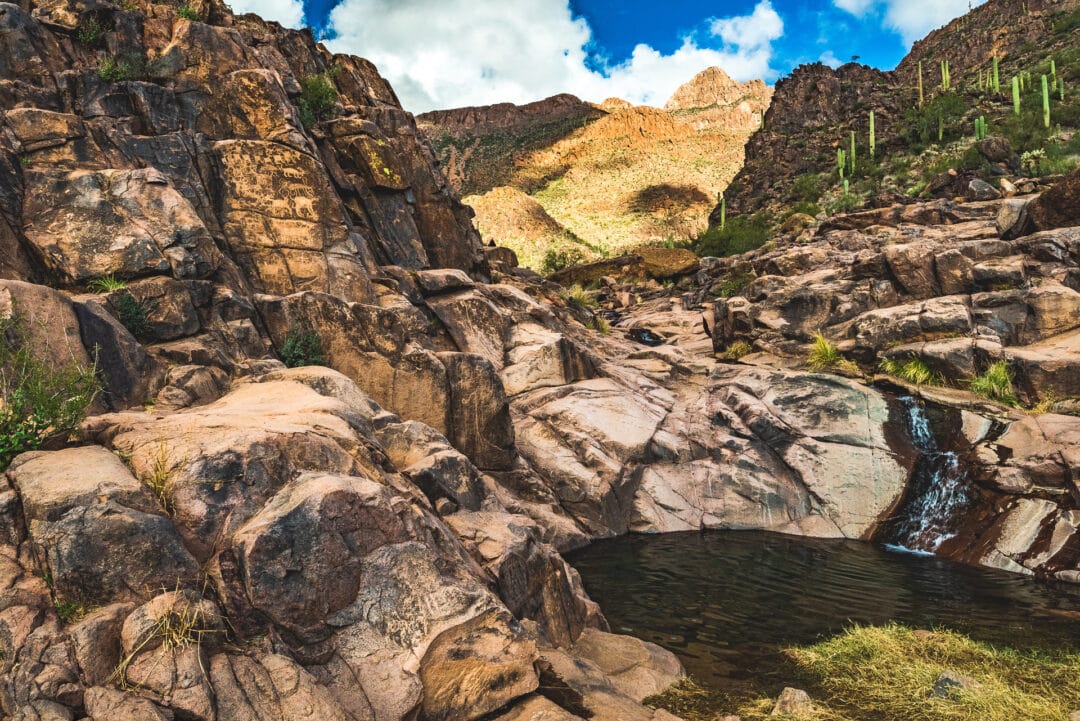
7. Hieroglyphic Trail
Hieroglyphic Trail is located right in the Superstition Mountains and is easily accessible through Gold Canyon. At just 1.5 miles long, it’s one of the shortest trails in the area, making it great for families and hikers of all experience levels (dogs aren’t allowed). Don’t let the short trail fool you into thinking that it’s lean on history—in addition to subtle ancient markings left on the stones and cliffs, the Hieroglyphic Trail is filled with cacti and gorgeous views of Gold Canyon and the Gila River plain.
8. Salt River Tubing
If you happen to be visiting during the summer, Mesa’s Salt River Tubing is the best way to feel as if you’re truly immersing yourself in the surrounding geography. At Salt River Tubing, you can rent inner tubes and catch a bus upstream. From there, you’ll drop the tubes into the water and take a float down the salt river back to your starting point. As you drift, take a moment to enjoy the sights and appreciate the region’s incredible geologic history.
9. El Dorado Hot Springs
After exploring Phoenix, escape the city for a day trip to El Dorado Hot Springs. Kick back and relax in the mineral water, said to feel like you’re bathing in “liquid silk.” Choose from a wide variety of relaxing experiences, including five different pools in quiet, private areas ranging from shady (Duck Pond) to sunny (Desert Vista). Be aware that this low-key spot is almost unnoticeable from nearby I-10—and reservations are required to enjoy the overgrown and rustic oasis.



